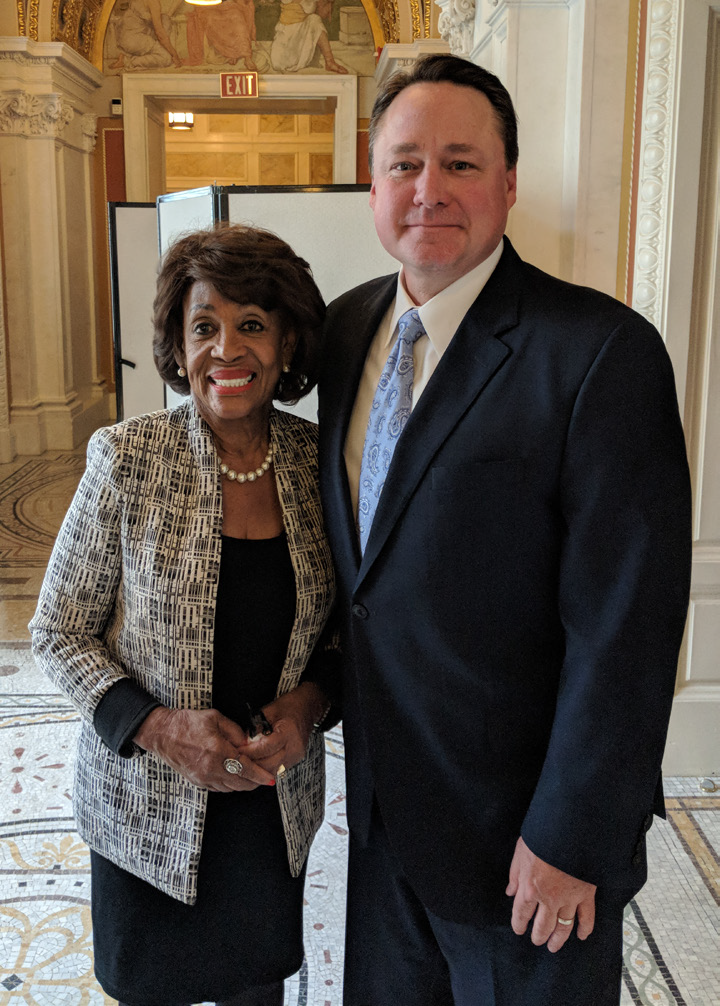House Financial Services Committee chair shares her perspective as she — and the committee — work to ensure a fair playing field for credit unions
Q: What do you hope to get done in your committee in this Congress as chairwoman?
A: As chairwoman, I am committed to ensuring that the regulatory playing field is fair for credit unions while ensuring consumers are protected from abusive practices by any financial firm. I am also prioritizing holding megabanks and their regulators accountable, making sure there are strong safeguards in place to prevent another financial crisis, expanding and supporting affordable housing opportunities, tackling the homelessness crisis, encouraging responsible innovation in financial technology, promoting diversity and inclusion in the financial services sector, conducting appropriate oversight, and ensuring that hardworking Americans and small businesses have fair access to the financial system and opportunities to thrive.

Already this Congress, our committee has advanced legislation to end homelessness, protect consumers, modernize the Anti-Money Laundering/Bank Secrecy Act framework and create a safe harbor for credit unions and other financial institutions to serve state-regulated cannabis businesses. Some of the important issues we are going to try to tackle on a bipartisan basis this Congress include long-term reauthorization and reform of the National Flood Insurance Program (NFIP), Terrorism Risk Insurance Act (TRIA) and the reauthorization of the job-creating Export-Import Bank of the United States.
Q: How important is bipartisanship to passing legislation?
A: Throughout my career, I have looked for opportunities to build consensus and work across the aisle on common-sense solutions to benefit hardworking Americans. As chairwoman, I am continuing to work to find areas where we can all work together, including ways to level the playing field for our nation’s credit unions while maintaining appropriate safeguards.
Q: Credit unions are committed to bettering their communities and the people they serve. How important are credit unions to you and your constituents?
A: For years, credit unions have set the standard for how financial institutions should deliver real value for their members and our communities. Credit unions serve as an invaluable service-driven alternative to profit-driven, larger financial institutions that sometimes build business models around deceiving and taking advantage of their customers. Credit unions play a very important role in providing access to capital, credit, and services to hardworking Americans in my district and across the country.
Q: Over the years, NAFCU has had a great working relationship with you and your staff. How would you describe your relationship with NAFCU?
A: I have had a great relationship with NAFCU for many years, and I look forward to continuing to work with
you. NAFCU serves as an important resource to members of Congress and their staffs, and it is an effective voice
for credit unions. I applaud the commendable work that credit unions do around the country to meet the needs of their members.
Q: What is one thing you would want credit union leaders to know about you?
A: I have an open door, and I want to work together to solve real problems that can benefit all consumers. Too often in Washington, I have seen Wall Street megabanks hijack an issue that small community financial institutions like credit unions may raise, and press for deregulation that can send us into a major recession — as we saw from the financial crisis a decade ago. I want to work to prevent this from happening. I encourage credit union leaders to reach out to me or my staff whenever you have a concern or suggestion for Congress to consider, and be very specific about the problem that needs to be solved and how it would help the communities you serve.
Q: What advice would you give to credit union representatives about how to deliver their message as they meet with lawmakers?
A: You are always welcome. I have an open-door policy, and I am always willing to hear the concerns
from credit union representatives about the specific challenges that credit unions face in today’s marketplace.
The more evidence and data you can present about your concerns, the better.
This article was published in the September-October 2019 edition of The NAFCU Journal magazine.
Want to receive The NAFCU Journal in your inbox? Update your email preferences.
Related Content
- The NAFCU Journal Interview: Sen. Mike Crapo - Championing Credit Unions
- Newsroom: Housing finance reform, fintech among top HFSC fall priorities
- NAFCU Congressional Caucus speakers, including The Honorable Maxine Waters
